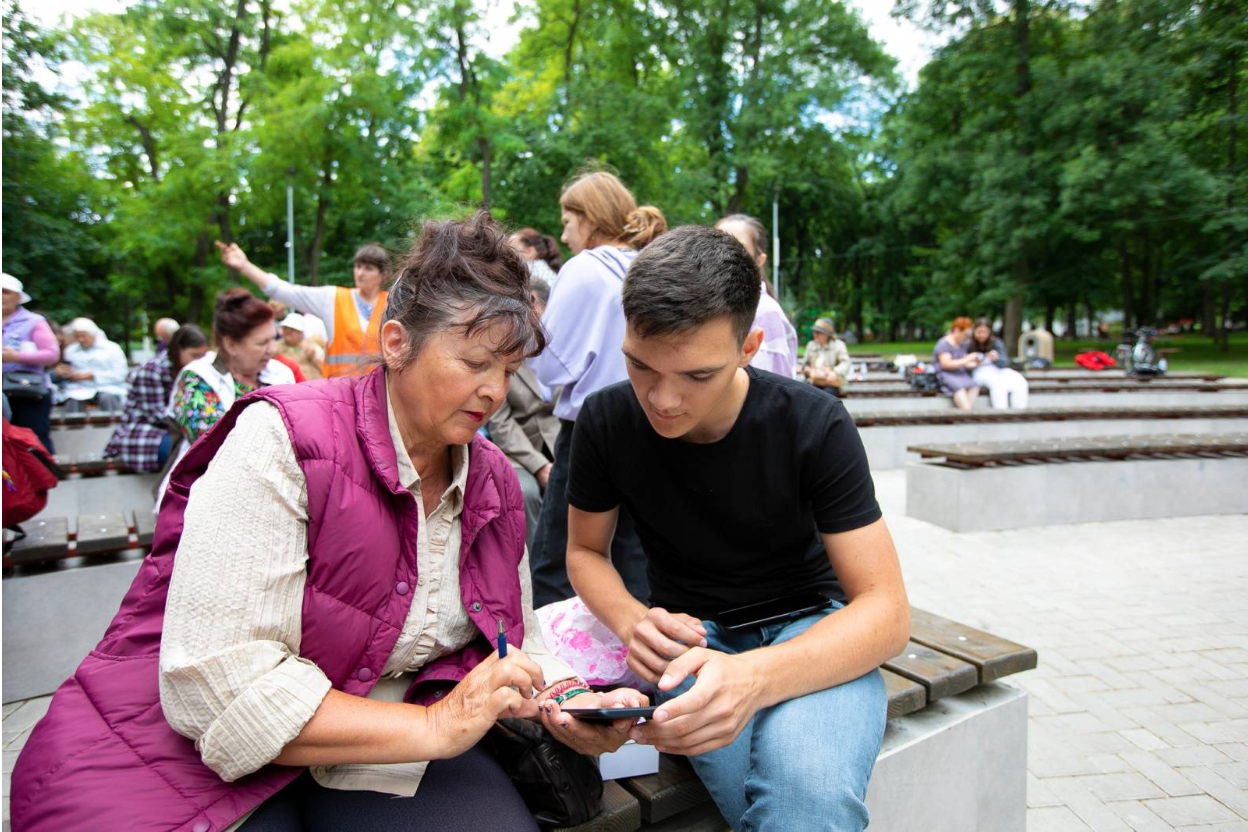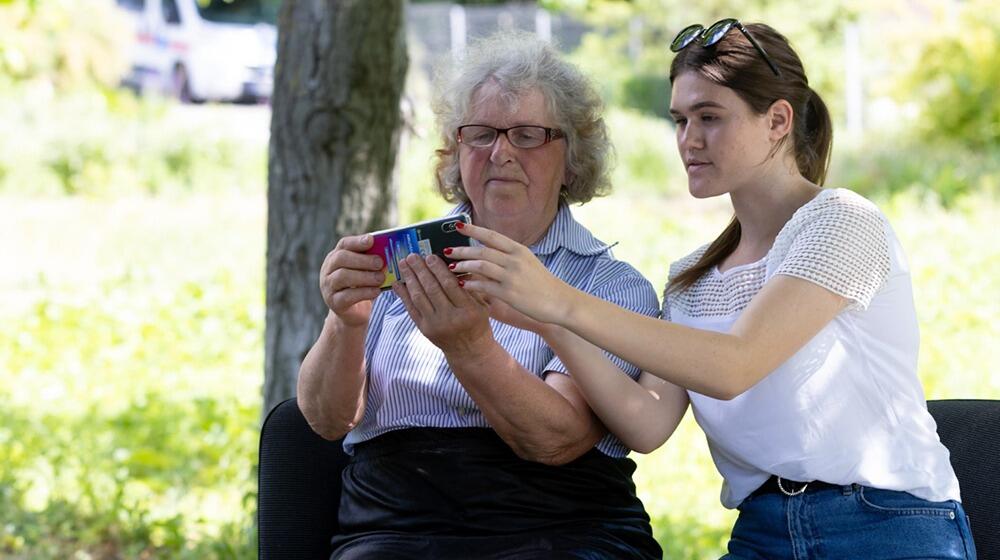CUIZĂUCA, Moldova – Last year, retired teacher Elena Gobjila returned to the classroom. But this time, she was the student. Under the patient tutelage of Catalina Neghina, her own former student, the 74-year-old learned to use the Internet.
"During my first lesson, I told her, Catalina, I taught you to hold a pen, now you have to help me learn all the secrets of the Internet’," said Ms. Gobjila.
“We started the training from scratch,” said Ms. Neghina, 20, who taught Elena and two other retired educators. “How to turn on the phone, how to connect to the Internet. They all needed to learn, in order to be able to communicate more with their children, and access social media.”
In Moldova, the digital divide between older and younger people is enormous. As of 2020, according to a UNFPA survey, only 34% of people aged 60-79 used the Internet, compared to 82% of those aged 15 to 59.
During the COVID-19 pandemic, this lack of digital access sharpened the isolation of older people, who often live alone, with limited access to social support. In another UNFPA survey, over half of people over 55 said they found it very difficult to cope with social isolation. With mobility especially restricted for Moldovans aged 63 and older, many also had a hard time accessing the medical and social services they needed.
Fostering intergenerational connections to combat ageism
Launched soon after the outbreak of the pandemic in 2020, the Digital Skills Connect Generations project aims to narrow the generational digital divide and help older Moldovans access the services they need – while fostering intergenerational dialogue in the process.
UNFPA rolled out the initiative with partners including the Moldcell Foundation, Moldova’s Ministry of Labour and Social Protection, the Czech Republic, the Swiss Agency for Development and HelpAge International.
The project now engages more than 650 older people in 26 communities across Moldova. Using donated mobile phones, young volunteers from each community teach older residents how to use a mobile phone, navigate the web, create a social media account, and access social and medical services online.
By teaching older people much-needed skills and by strengthening connections between younger and older people, the programme helps to combat ageism, which a recent UN report found to be pervasive across Europe.
In Moldova, about three quarters of people over 60 have limited opportunities for active and healthy aging, according to the country’s Active Aging Index. Generational disparities are pronounced in the labour market, exacerbated by the fact that older people are slower to adapt to emerging trends, including those driven by new technologies.

Meanwhile, Moldova’s population is both aging and shrinking, as a result of low fertility rates and migration.
Many younger Moldovans leave the country in search of work. “For decades, grandparents stepped in when young adults packed up and left the country, running households and taking care of the grandchildren back home,” said Nigina Abaszade, UNFPA Representative in Moldova, who leads a team advising the Government on managing demographic change.
According to the UNFPA-supported Generations and Gender Survey, 15.5% of Moldovans intend to leave the country within the next three years. Currently at 2.6 million, by 2040 the country’s population is projected to fall to 1.7 million people, with half over 50 years old.
In the face of such rapid demographic changes, intergenerational solidarity is more important than ever.
“Building stronger ties and a greater sense of connectedness between the generations is key for combating ageism and a cornerstone in countries’ efforts to strengthen their demographic resilience,” said Florence Bauer, UNFPA Regional Director for Eastern Europe and Central Asia.
“We are excited to see so many young volunteers coming forward now as part of our programmes, to give back to their elders and do their part in creating a society for all ages,” said Ms. Abaszade.
Exchanging skills and experiences
At first, Ms. Neghina was skeptical about the benefits of teaching older people about technology. “It seemed to me that older people and digitalization were incompatible,” she said, echoing a widespread stereotype.
But the experience of teaching Ms. Gobjila and other programme participants soon changed her view, as she learned how digital skills can improve older people’s lives.
Equipped with her new skills, Ms. Gobjila now uses the Internet to talk to her son, who lives abroad, and to reconnect with old university friends and former students. Together with her husband, she goes online to watch movies and television shows on history, culture and politics.
Digital skills also enable older people to more easily access public services and pay for utilities. One participant was able to request that his pension be recalculated, while another managed to book a health appointment at a sanatorium online.
Young volunteers like Ms. Neghina are benefiting from the programme as well, and appreciating the value of closer connections with the older generation.
"We young people have a lot to learn from them,” she said. And she simply enjoyed the time spent with Ms. Gobjila. “Once we started talking, we didn’t notice the time passing. We talked about life, social interaction, and the secrets to a happy marriage.”
"The opportunity to communicate more with older people has been a very positive experience," she said.


